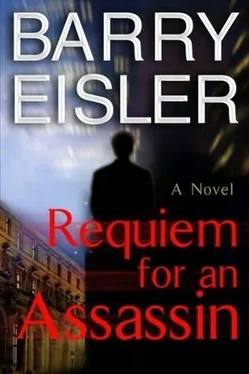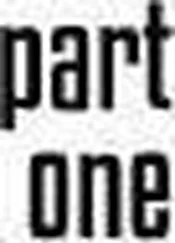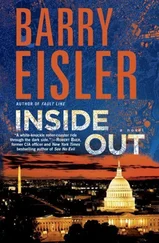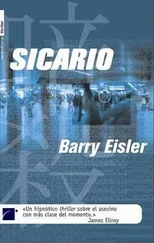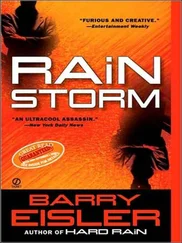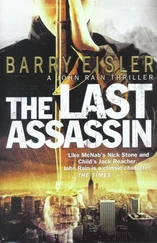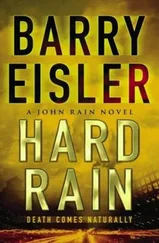“We’ll be up to date. But if you want something else from me, you’ll have to do something in return.”
Ah, the moment of truth, I thought. At last.
“Yeah?” I said. “Who?”
“Don’t you mean what?”
“I already know what.”
He nodded, conceding the point. “Even if you get Dox out of this, you’re going to take out Hilger, aren’t you?”
“I don’t know.”
“You know. The only thing that worries me is how patient you are. Look how long you waited to do Yamaoto.”
“I don’t know why you think that was me. From what I read, he got shot, then died in the hospital of a cardiac arrest.”
“Now who’s bullshitting? I know Dox shot him. It was a 7.62 round, same as the rifle I procured for you. And you gave him the heart attack. Look, Tatsu and I were working together more closely than you know. He told me a lot.”
He might have been bluffing. But the relationship with Tatsu was true, I knew.
“Tatsu told me you were doing something together,” I said.
He nodded. “Call it unofficial counterpart relations.”
“Is that what killing Hilger is about?”
“It’s part of it.”
“Why do you want him dead?”
“When did why start mattering to you?”
I shrugged. “It doesn’t.”
“Good. You want my help with Dox? Help me with Hilger. Don’t wait when you find him. As soon as you have the shot, take it.”
“All right,” I said. “It sounds like we’re on the same page. You want me to take out Hilger, and I want to find him. Hard to do one without the other.”
“Good,” he said again, nodding. “Now tell me what you need.”
FROM TOKYO, I flew to Los Angeles, arriving on a cool, clear winter morning. San Francisco would have been more convenient, but Hilger knew I was coming and I didn’t want to do anything that would help him anticipate me. It was bad enough he knew I’d be tracking Jannick; I wasn’t going to offer up an additional datapoint unless I had no choice.
Before leaving, I’d gone to an Internet café and uploaded the photos of Mr. Blond to Kanezaki. It wouldn’t be much to go on, but Mr. Blond and Hilger must have both applied for Vietnamese visas in the last seventy-two hours. That might be enough for Kanezaki to cross-reference. If it wasn’t, I’d just have to get him more information. I included Dox’s mobile number in the upload-the one Hilger was using now. Probably Hilger was keeping the phone off out of fear that I might have some means to triangulate on the signal, but it was still worth trying.
I might have given Kanezaki the URL of the compromised bulletin board, too. Maybe he could tell me where it was being accessed. But I decided to hold off on that. Even if Kanezaki had the technical means, and I wasn’t sure he did, I doubted Hilger would be sloppy enough to access the site from anywhere that would reveal his actual position. And if Kanezaki managed to hack the site itself, he’d be able to read my communications with Hilger, including the ones about Jannick. I didn’t want to take that chance for so little probable gain. At least, not yet.
I had also checked the bulletin board I used with Dox, now compromised, of course, by Hilger. Hilger had uploaded a thorough dossier on Jannick: photos, home and work addresses, make and model of car, everything. I looked at the photos for a while. They had all been taken from public sources: his Stanford yearbook photo, company bios, some newspaper clippings. He was blond, with a round face, rectangular rimless glasses, and an uncertain smile balanced by a determination in his eyes. No surveillance photos. Apparently, Hilger had never gotten that close.
The home address was Christopher Lane; work, East Bayshore Road, both in Palo Alto. I’d never been to the town, but of course knew of it: birthplace of Hewlett-Packard and other technology giants; home of Stanford University; once a sleepy community of apricot groves, now the world’s foremost technology center, the heart of Silicon Valley itself.
At LAX, I rented a Mercedes E500 with a navigation system. With the extra miles I was going to be driving, the car would run me about two thousand dollars, but it was worth it. I didn’t know how much skulking around would be required before I figured out how to get close to Jannick, but there was a lot of money in Palo Alto and I expected the Mercedes and BMW quotient to be high. The locals, and local law enforcement, would take a lot less interest in a sixty-thousand-dollar car parked at the curb than they would in a Buick.
I stopped at a sporting goods store, where I equipped myself with a three-inch Benchmade folding knife. Tossing such quality knives every time I got on a plane was definitely an expensive habit, but it beat not having something sharp at hand when you needed it. Next, a Cingular shop, where I picked up an Apple iPhone. The mobile I had been using with Dox was now compromised, of course, and I needed something new and therefore sterile. The iPhone had a huge screen that made it useful for Internet access-not as versatile as a laptop, true, but it was a lot more portable and was always connected, too.
I drove north on Interstate 5 with the cruise control set for seventy-two-close enough to the seventy-mile-an-hour speed limit to ensure I wasn’t risking a ticket; just enough over the limit to look normal. Plenty of cars passed me at eighty or better, and I silently thanked them for drawing off any prowling Highway Patrol cars and making me uninteresting by comparison.
I reminded myself of who I was, what I was doing here-the story I would use if anything went awry and I wound up facing questions from someone, a neighbor, a hotel clerk, a cop. Cover for action, the American spy agencies call it. It’s the ostensible reason you have prepared in case you’re caught doing something you’re not supposed to. A fairly intuitive concept, actually, as anyone who’s ever had an affair can tell you. When one of your colleagues shows up unexpectedly during your lunchtime assignation at your favorite out-of-the-way restaurant and says, “Jim! What a surprise to see you here. And who’s your lovely companion?” you’d better have a prefabricated explanation, or your only response is likely be the time-honored slow suicide of “Uh, uh, uh…” or perhaps a variation of a “This isn’t what it looks like” or an “I can explain this,” both of which are universally understood to be confessions of full guilt.
The concept is easy, but effective execution is difficult. It requires imagination, a talent for acting, and experience. At this point, for me, the operation is second nature. I imagined myself as who I was: Taro Yamada, recently divorced, easing the pain of separation with a rambling holiday on America’s West Coast. The camera I had with me would support the story, and I made sure to snap pictures of a few vistas along the way. It was a persona I’d used before, and I knew the details well, even the name of my divorced wife, and our grown daughter, the location of my apartment building in Tokyo, the office where I worked as an executive in one of the big electronics concerns. None of it was well backstopped, but it didn’t need to be. The popular American perception of Japan today is of a peaceful people, craving luxury brands, snapping pictures ceaselessly, polite, prosperous, deferential, supportive of America’s war on terror. Nothing about my face or behavior would arouse any concerns. These days, it was the dark, bearded, Abdullah-looking types who got all the attention, never mind the protests of the antiprofiling crowd. And even if anyone wanted to check up on some of the details of my story, both the country and the language are opaque enough to throw off and eventually frustrate all but the most ardent and expert hunters.
Читать дальше
